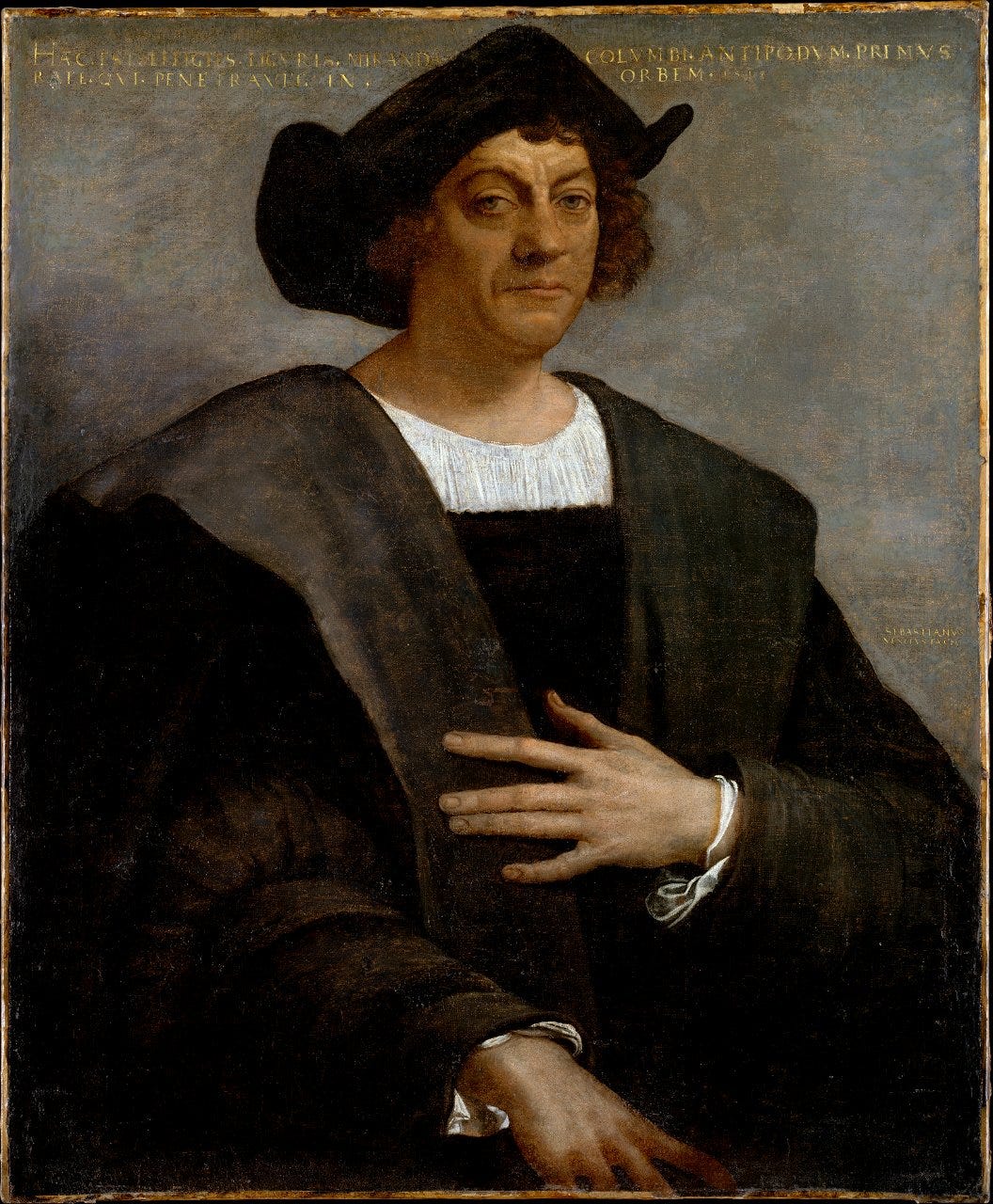One year ago, Yahya Sinwar, mastermind of October 7 and mass murderer of his own people, believed that today he would be sitting atop the Islamic world as a warrior god, the man who brought Muslims together for the redemptive final battle to destroy Israel and restore Islam’s primacy. Instead, he was killed in a shootout with Israeli forces.
Sinwar did not die in a heroic last stand with Israel’s elite forces. He did not take down as many of the Jews as he could. He was killed by an IDF training battalion that stumbled upon him accidentally. The unit of trainees was operating in a neighborhood devoid of civilians, but had no intelligence that Sinwar was there and weren’t looking for him. They thought they were engaging with a small group of Hamas fighters firing on them from inside an apartment, which was then partially collapsed by tank fire. They sent in a surveillance drone and chanced upon a body that looked like Sinwar. DNA was taken and confirmed a match. Amongst the items found on and near his body were 40,000 Israeli shekels in cash (about $11,000), a role of Mentos candy, and an ID card belonging to an UNRWA teacher who is alive and in Egypt. The last footage of him alive showed him cowering behind a chair. This was not a glorious death.
Let’s hope the New York Times, Washington Post, and other legacy media spare us the fawning obituaries they gave Hezbollah leader Hassan Nasrallah. Sinwar brought misery to everyone and everything, and total ruin upon the very people — the Palestinians — whom he claimed to champion. But his fight was never about improving the Palestinian future. He was an egomaniac acting on what he believed was a religious obligation to annihilate the Jews and their allies, subvert the West, and re-take lands that Islam had previously conquered. He first earned his ruthless reputation by brutally executing Palestinians he deemed collaborators with Israel, severing their heads and limbs. The Palestinians gave him the nickname, “the Butcher of Khan Younis” (the city in Gaza where he was born). He thrust Hamas into Egypt’s civil war, resulting in the sealing of the Gaza-Egypt border that deepened the Palestinians’ deprivation. He was clear that the death and suffering of innocent Palestinians, especially children, is a welcome and necessary sacrifice for the goal of killing Jews in the service of Islam.
The war he started on October 7 succeeded in bringing abject misery on Israel, the Palestinians, and citizens from dozens of countries. But he completely failed to rally the wider Islamic world to his cause. With the exception of Iran and its proxies, no other country joined the battle against Israel, none of the other Arab states severed their relations with Israel, and the Muslim world did not race to his cause. His cruelty and hatred blinded him to the realities of the Middle East, and he paid for that hubris with tens of thousands of lives and, finally, with his own.
What the IDF did not find with Sinwar’s body were any hostages. Why? We assumed that Sinwar must be keeping himself close to at least a few living hostages, in order to prevent this very kind of attack. But things have been chaotic lately, and it seems Sinwar and a small group were moving quickly from tunnel-to-tunnel, house-to-house, in an effort to escape Rafah. This would have been hard to do with wounded, starving, slow-moving hostages.
So — now what?
We have two big questions: what does this mean for the hostages/cease-fire possibilities, and what does this mean for Hamas and Gaza?

Who’s in charge of Hamas now?
There are around a half dozen or so still-living senior commanders who can step into Sinwar’s role. A few of them may have been killed in the last few months, but Hamas usually admits these things and hasn’t so far. The most likely successor is probably his brother, Mohammad, who is just as ruthless. It was Mohammad who coordinated the 2011 hostage deal that saw over 1,000 prisoners exchanged for a single captured Israeli soldier, of whom Sinwar was one of the most prominent prisoners. (An Israeli doctor had treated Sinwar for life-threatening brain cancer in prison. That doctor’s nephew was murdered on October 7.)
Sinwar’s remaining deputies continue to be hunted by the IDF. Whoever takes over Hamas probably won’t live long enough to rebuild the organization or reconstitute a secure system of command and communications.
Perhaps a better question is what is Hamas still capable of? They still have thousands of fighters capable of wrecking havoc. Like Hezbollah, the destruction of their leadership doesn’t end the organization, just atomizes it into smaller cells that may have standing orders in place for what to do when their leader is killed. Hamas and its supporters have been carrying out terrorist attacks in Israel almost every day the last few weeks, killing dozens of people. And Israeli soldiers continue to die in Gaza from Hamas’ guerilla warfare — as do Palestinian civilians. But to what extent is Hamas still a cohesive army capable of controlling Gaza? Are they instead a “nuisance” group that could be dealt with by a firm hand in charge of the Strip?
So Sinwar’s death doesn’t end Hamas, but it’s certainly a blow, and puts new pressure on the group. They can’t count on much support from Hezbollah, Iran, and the Houthis, which have their hands full (the United States just bombed Houthi sites in Yemen with the B-2 stealth bomber, sending a message to Iran that the United States can reach targets there, too. And Iran is still waiting on the response from Israel to the ballistic missile attack).
Israeli Prime Minister Benjamin Netanyahu called Sinwar’s death, “the beginning of the end” of the war in Gaza. He called on Hamas to lay down its arms and return the hostages so that “the war can end tomorrow.” He promised that Israel “will guarantee the safety of all those who return our hostages,” and that whomever harms the hostages, “Israel will hunt you down and bring you to justice.”
Will a hostage return actually happen?
Israel is holding its breath: will Hamas now execute some or all of the remaining living hostages? There are still 101 hostages there, some living, others known to be dead.
Or is a cease-fire-for-hostages deal now more likely? Sinwar has always been the main obstacle, contrary to the popular belief that it was Netanyahu (he gets his fair share of the blame, but that’s a longer story). I’ve long argued that Sinwar never really wanted a deal. For him, it was a play for time and a way to make Israel continue to look bad. Does Sinwar’s policy of intransigence continue, or is there now an opportunity for change?
There are yet more questions: where are the hostages? Who in Gaza knows where they are? How many are still alive, and which ones? Who has control over them? Are they with Hamas fighters, or hidden inside the homes of Hamas supporters pretending to be civilians? The answers to those questions would tell us a lot about the situation.
As long as hostages remain in Gaza, Israel cannot stop fighting there without giving them up. So another possibility is that Netanyahu sees Sinwar’s death as an opportunity to escalate the fighting, in an effort to apply enough military pressure to force a deal with whoever takes charge.
Israelis have suspected that part of Netanyahu’s reason for continuing the war in Gaza was personal: he wanted to get Sinwar for humiliating him with the October 7 attack. Now his nemesis is finally dead, which takes away that reason. The Philadelphi Corridor, the border strip between Egypt and Gaza that was Hamas’ lifeline and which Netanyahu has also claimed as a reason to continue the war, looks much more secure (but still very dangerous for Israeli troops). A strategic plan for the future of Gaza is still up in the air. There is no clarity as to whom will take over once Hamas is no longer in power. But if there is an opportunity now to strike a deal for the hostages, Netanyahu is pretty much out of reasonable objections.
So we sit for another agonizing wait.
Sinwar’s legacy will be determined by whether Palestinians hail him as their great martyr. Perhaps they’ll continue to believe that he offered meaning to their suffering through the promise of an Islamic redemption that will bring them everlasting reward in the next life. Or will they recognize that he was responsible for that suffering, and remember him accordingly? Sinwar’s life brought nothing but total disaster. The Palestinians would never have a future as long as he lived. Let’s hope his death can change that dynamic for the better.
Was Christopher Columbus Jewish?!
One of Jew Oughta Know’s most popular episodes, and a perennial favorite for presentations, was Episode #63: Was Christopher Columbus Jewish? A raft of circumstantial evidence suggests that The Admiral, always secretive about his origins, may have been born a Sephardic Jew in Spain, whose family fled to Genoa, Italy to escape the infamous Spanish Inquisition in the mid-1400s.
An explosive documentary just aired on Spanish TV claiming to have DNA answers, taken from Columbus’ bones and those of his sons. But other scientists are now pushing back, arguing that the evidence is thin, sensationalized, and not been made available for peer-review or critical analysis.
Last week I updated that original episode with the new evidence. Take a listen wherever you get this podcast!
Episode 186: Update! Was Christopher Columbus Jewish?

Bring Jew Oughta Know to your community
Whether we’re talking Christopher Columbus’ DNA or the impact of Yahya Sinwar’s death on the Middle East, bring me to your community for the latest and greatest on what’s happening in Israel and around the Jewish world.
Inquire for rates and scheduling at jewoughtaknowpodcast@gmail.com.
Please consider donating!
Huge thanks to all the recent fans donating, leaving positive reviews, and telling everyone they know about Jew Oughta Know! Please consider a donation to keep this project going. You can donate at the Jew Oughta Know website. Please note that donations are not tax deductible.
Picture of the Day
It’s Sukkot (soo-coat), a Jewish holiday grounded in joy and gratitude. The Hebrew Bible commands a seven-day celebration at this time of year. We remember that the Israelites built small wooden huts (sukkah (soo-kah), menaing “booth”) to live in while wandering in the desert after fleeing slavery in Egypt. Sukkot also marks the Fall harvest. In ancient times it was one of the three Pilgrimage Festivals for Jews to make their way to Jerusalem (the other two are Passover and Shavuot).
Today, many Jews build a small sukkah in their backyard. It’s traditionally constructed with three walls, one open side, and a loose ceiling through which you can see the sky. We decorate it with fruits, vegetables, and other Fall motifs, and spend time in there sitting and eating (and writing Substack newsletters).





